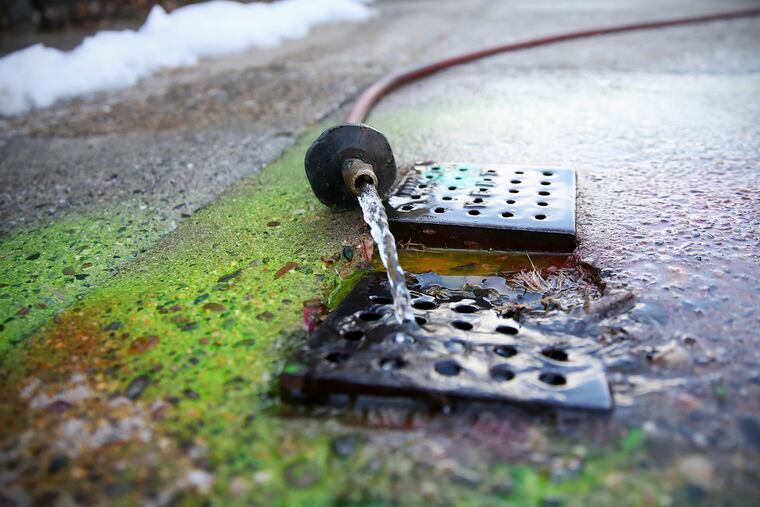Philly should live up to green stormwater plan and reduce pollution | Opinion
The city created a smart plan to reduce stormwater pollution, but hasn't followed through with it.

Philadelphia’s rain gardens, tree trenches, and stormwater planters — part of the city’s network of green stormwater infrastructure (GSI) — play a crucial role in reducing the stormwater pollution that affects our city’s residents. Among the many important issues that candidates must weigh in advance of the May 21 municipal primaries, the social, economic, and environmental benefits of GSI for Philadelphia residents should not be discounted.
Philadelphia is a densely developed city with a lot of pavement. When it rains or when snow melts, the runoff picks up oil, dirt, and other pollutants from roads, parking lots, and roofs, as it makes its way to storm drains. About 60 percent of Philadelphia’s storm drain system is a combined system that mixes stormwater with household wastewater. During large storms, much of that combined sewage flows untreated directly into local rivers and creeks, including the Delaware and Schuylkill Rivers as well as the Cobbs, Pennypack, Tacony, and Frankford Creeks. The combined sewage may also back up into our roads and our homes, causing flooding and adverse health impacts.
In 2011, under mandate from federal and state environmental protection agencies, the Philadelphia Water Department (PWD) designed a plan known as Green City, Clean Waters to address these combined sewage overflows with the use of GSI, such as rain gardens, tree trenches, green roofs, and stormwater planters. The goal of Green City, Clean Waters is to increase GSI in Philadelphia to reduce the amount of polluted stormwater overflows discharging into the creeks, streams, and rivers in and around Philadelphia by 85% by 2036.
If implemented correctly, GSI has the potential to accomplish substantial co-benefits for our neighborhoods and city. It creates community green space, revitalizes vacant lots, enhances recreational use, and even reduces illegal drug use in public spaces. It can decrease heat stress and energy use while improving air quality and contributing to climate change resiliency. And GSI can stabilize property values and reduce poverty through job creation.
Since its implementation, Philadelphia has greened more than 88 acres and completed more than 940 projects with GSI. However, we believe that the program is not being implemented to its fullest potential, with a shift away from green features and a greater emphasis on “gray” infrastructure, such as tunnels and wastewater collection and treatment systems, more conventional approaches than green methods that are designed to be environmentally friendly.
Exclusive reliance on gray infrastructure can be prohibitively expensive, energy-intensive, and disruptive to neighborhoods. Nor does it produce the same social, economic, and environmental benefits as GSI. The high costs of gray methods may explain why the city’s estimated costs for the program started at $2.4 billion in 2011, yet have more recently climbed to $4.5 billion.
Barriers to successfully implementing Green City, Clean Waters exist. PWD exerts minimal direct control over city property and cannot accomplish all necessary projects without strong partnerships with other city agencies and the private sector. Within PWD, there are concerns about costs related to GSI construction and maintenance. From its beginning, PWD understood the necessity of private investment in GSI through regulatory changes and grant incentive programs, but barriers to maximizing private investment persist.
Candidates for mayor and city council should review “A Common Green Stormwater Infrastructure Agenda for Philadelphia,” which several organizations, including my own, developed as a policy guide for addressing these challenges. Chief among our recommendations is promoting equitable distribution of GSI, directing all city department heads overseeing public land to develop numeric targets and implementation plans, improving and expanding private incentives and public funding, and consolidating maintenance responsibilities across city agencies. Elected officials in city hall must spark a renewed focus on the use of GSI and enact policies accordingly so that Philadelphia does not lose this critical pathway to cleaner water and the opportunity to provide social, economic, and environmental benefits to all its residents and communities.
Jacquelyn Bonomo is president and CEO of PennFuture.